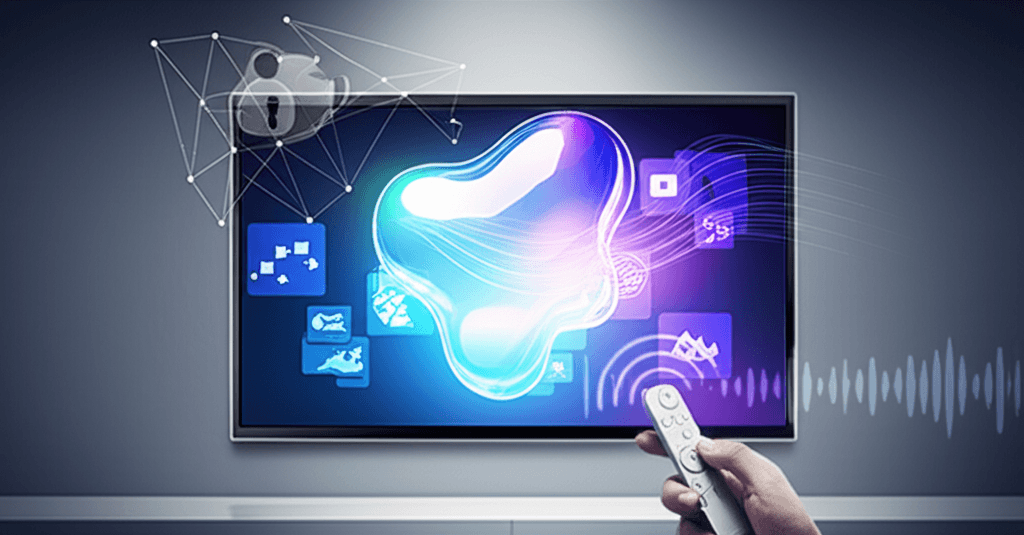Microsoft Copilot Arrives on Samsung TVs, Redefining Living Room AI
Beyond display: Microsoft Copilot transforms Samsung's 2025 TVs into intelligent, interactive hubs, competing for home AI supremacy.
August 28, 2025

In a significant move to embed artificial intelligence deeper into the living room, Microsoft's Copilot assistant is now available on select 2025 Samsung smart TVs and monitors. This integration marks a major expansion for Microsoft's AI ambitions, moving Copilot beyond the desktop and into the central hub of the home. The partnership with Samsung, the world's leading TV manufacturer for 19 consecutive years, signals a new front in the ongoing battle for AI assistant dominance, transforming the television from a passive display into an interactive, conversational companion.[1][2] The free-to-use AI assistant is rolling out on Samsung's premium 2025 lineup, including the Neo QLED, OLED, and The Frame TV models, as well as the M7, M8, and M9 smart monitors.[3][2] This strategic alliance aims to redefine the smart home experience, with both companies betting that the biggest screen in the house is the next key frontier for AI integration.[1][2]
The introduction of Copilot on Samsung's Tizen operating system is designed to offer a more intuitive and natural way for users to interact with their televisions.[4][5] Accessible via the Samsung Tizen OS home screen, Samsung Daily+, and a "Click to Search" feature, users can activate Copilot with their voice through the remote's microphone button.[6][5] The on-screen presence is described as a "friendly, animated character," a responsive blob that reacts and lip-syncs during conversations, aiming to make the interaction feel more engaging and less transactional.[7][6][5] Functionally, Copilot offers a wide range of capabilities tailored for an entertainment setting. It can provide personalized movie and TV show recommendations based on complex, conversational queries, such as asking for a film "like The Queen's Gambit, but about cooking instead of chess, and under two hours."[8][9] The assistant can also deliver spoiler-free recaps of shows, helping users catch up on a series, and can even suggest content that would appeal to a group with diverse tastes.[8][9] Beyond entertainment, Copilot can answer general knowledge questions, from the weather forecast for a weekend hike to details about the actors on screen, presenting information in visually rich cards designed for the big screen.[4][9]
This collaboration represents a pivotal moment in the evolution of the smart TV market and the broader AI industry. For Microsoft, it plants its flagship AI assistant directly into the heart of the connected home, a domain long contested by Amazon's Alexa and Google Assistant.[5] This move is a clear statement of Microsoft's intent to compete for a central role in the consumer's daily life, extending its reach from productivity software to home entertainment.[2] For Samsung, this integration is a key component of its "Samsung Vision AI" strategy, enhancing its smart TV platform with a powerful conversational AI layer.[10][11] The partnership is also framed as an "open AI partnership," suggesting a strategy of integrating powerful third-party AI to create a more compelling user experience, rather than relying solely on its native assistant, Bixby.[3][7] The companies have stated that the combination of Copilot and Bixby will create a "richer, more contextual smart display experience," though the specifics of their interplay are still emerging.[4][8][9] This dual-assistant approach could provide users with a more comprehensive and capable smart TV, leveraging the strengths of both platforms.
The deeper integration of powerful AI into televisions also brings to the forefront important considerations around user privacy and data security. As with any device that is "always listening" for a wake word, there are potential concerns about what data is being collected and how it is being used.[12] While manufacturers assert that active recording only begins after a wake command, the potential for unintentional activation and the storage of private conversations remains a point of public concern.[12] Users will have the option to sign in with a Microsoft account to enable more personalized experiences, allowing Copilot to remember past conversations and preferences.[9][6] This personalization, while convenient, relies on the collection and analysis of user data, highlighting the ongoing tension between customized functionality and individual privacy.[13] As AI assistants become more ingrained in the fabric of daily life, both Microsoft and Samsung will face the challenge of being transparent with consumers about their data practices and providing robust privacy controls to build and maintain trust.[14][13]
In conclusion, the launch of Microsoft's Copilot on Samsung's 2025 TV and monitor lineup is a landmark development in the convergence of AI and consumer electronics. It represents a strategic push by Microsoft to establish a significant presence in the smart home and a move by Samsung to solidify its leadership in the TV market through advanced AI capabilities. This partnership not only challenges the established dominance of Amazon and Google in the voice assistant space but also redefines the role of the television in the modern home, transforming it into a proactive, intelligent hub for entertainment, information, and daily life. As this technology rolls out to more models and regions, its success will likely depend on delivering a seamless and genuinely useful user experience while navigating the critical issues of data privacy and consumer trust.[3][5] The living room has officially become the new battleground for the future of artificial intelligence.[2]
Sources
[5]
[7]
[8]
[10]
[11]
[12]
[13]
[14]